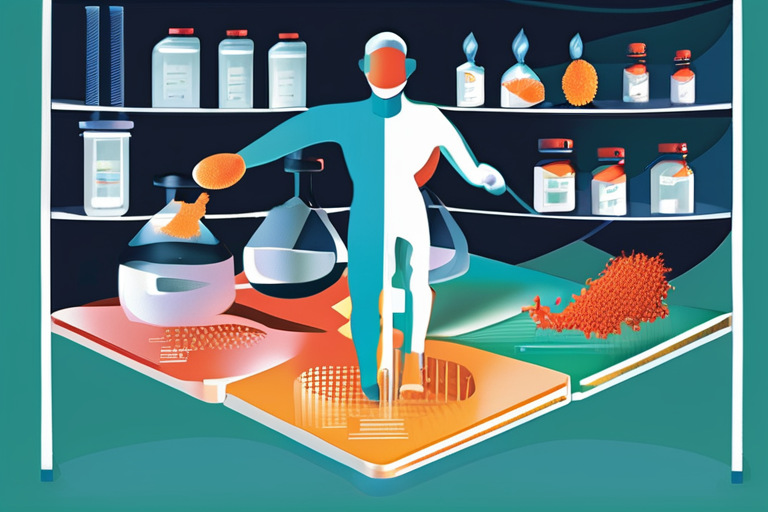The Download: Unraveling the Mysteries of the Immunome and Choosing Climate Tech Pioneers
Imagine being able to predict your vulnerability to viruses or cancer with uncanny accuracy. Picture a future where doctors can diagnose diseases before symptoms even appear, and tailor treatments to your unique genetic profile. Welcome to the world of immunomics, where scientists are cracking the code on the human body's most complex system: the immunome.
As we delve into the mysteries of the immunome, we'll also explore the rapidly evolving landscape of climate tech. With the clock ticking on our planet's ecological crisis, identifying the pioneers who will drive innovation and sustainability is more crucial than ever. In this edition of The Download, we'll take you on a journey to understand both the intricacies of the human body and the technologies that will shape our future.
The Immunome: A Mysterious System Revealed
Meet Dr. Rachel Kim, a leading immunologist at Stanford University. She's spent years studying the immunome, fascinated by its intricate web of interactions between cells, proteins, and other biomolecules. "Every person's immunome is unique," she explains, "like a fingerprint. It's shaped by our environment, diet, lifestyle, and even emotions."
The immunome's complexity is staggering: 1.8 trillion cells, trillions more proteins, metabolites, mRNA, and other molecules all working in harmony to protect us from invaders and maintain balance within the body. Yet, despite its critical importance, the immunome has remained largely a black box for modern medicine.
New technologies are changing that. Advances in genomics, proteomics, and single-cell analysis are allowing scientists to map the immunome with unprecedented precision. This knowledge will enable doctors to develop personalized treatments, predict disease susceptibility, and even prevent illnesses before they occur.
Climate Tech: The Next Generation of Pioneers
As we explore the frontiers of the immunome, it's essential to acknowledge the pressing need for climate action. Our 2025 edition of Climate Tech Companies to Watch highlights the innovators who will drive sustainability forward. From carbon capture technologies to renewable energy solutions, these pioneers are pushing the boundaries of what's possible.
We spoke with Dr. Maria Rodriguez, founder of a leading climate tech startup. "The next decade will be critical in determining our planet's future," she emphasizes. "We need to identify and support the companies that are developing game-changing technologies."
Choosing the Right Climate Tech Pioneers
So, how do you choose which climate tech pioneers to invest in or follow? Our team has identified key industries making progress, such as:
1. Carbon Capture: Technologies that can capture CO2 emissions from power plants and industrial processes.
2. Renewable Energy: Innovations in solar, wind, and hydrogen fuel cells.
3. Sustainable Agriculture: Methods for increasing crop yields while reducing water usage and chemical inputs.
When evaluating climate tech companies, consider the following factors:
1. Scalability: Can the technology be scaled up to meet global demand?
2. Cost-effectiveness: Is the solution economically viable?
3. Regulatory support: Are governments and policymakers backing the innovation?
Conclusion: A Future of Precision Medicine and Sustainable Innovation
As we unlock the secrets of the immunome, we're also unlocking a future where medicine is tailored to individual needs. Climate tech pioneers are driving sustainability forward, but it's essential to identify and support the most promising innovations.
In this edition of The Download, we've explored two critical areas: the mysteries of the human body and the technologies that will shape our future. As we move forward, remember that understanding the immunome is not just about individual health – it's also about creating a healthier planet for all.
Stay tuned for more insights into the world of technology and science. Join us next time on The Download as we continue to explore the frontiers of innovation and sustainability.
*Based on reporting by Technologyreview.*



 Hoppi
Hoppi

 Hoppi
Hoppi

 Hoppi
Hoppi

 Hoppi
Hoppi

 Hoppi
Hoppi

 Hoppi
Hoppi











